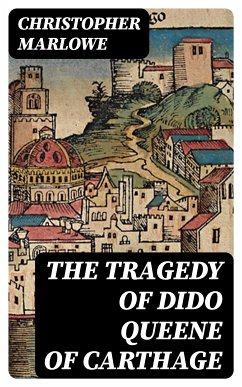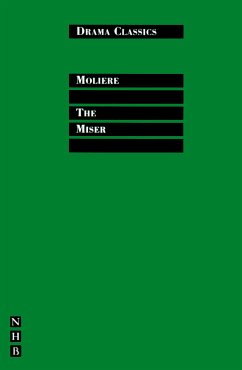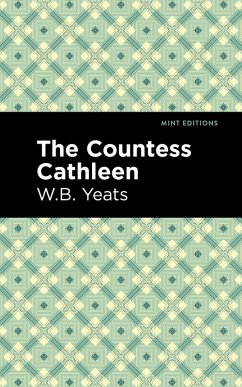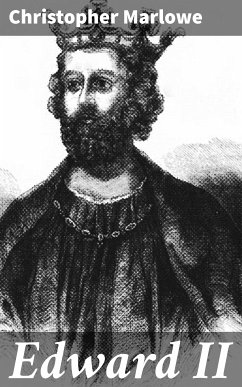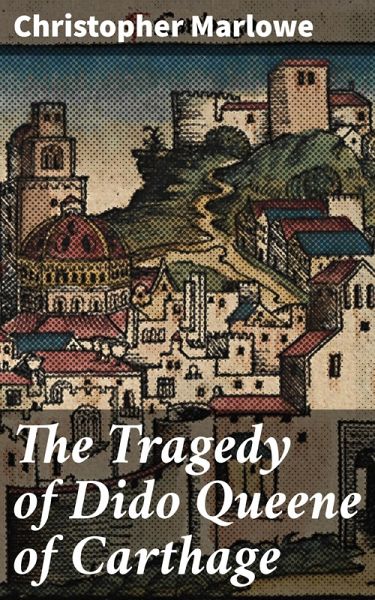
The Tragedy of Dido Queene of Carthage (eBook, ePUB)
Enriched edition. Love, Betrayal, and Power in Elizabethan Drama
Kommentar: Blackwood, Nigel / Redaktion: Good Press
Versandkostenfrei!
Sofort per Download lieferbar
1,99 €
inkl. MwSt.
Weitere Ausgaben:

PAYBACK Punkte
0 °P sammeln!
Christopher Marlowe's "The Tragedy of Dido Queene of Carthage" is a seminal work that intertwines exquisite poetic form with a poignant exploration of love, betrayal, and fate. Written in the late 16th century, this play adapts elements from Virgil's "Aeneid," highlighting the tragic romance between Dido, the Queen of Carthage, and the Trojan hero Aeneas. Marlowe's iambic pentameter and rich imagery elevate the narrative, drawing readers into a world where passion collides with duty. The duality of human emotion and the irreversible nature of destiny are central themes, creating a tapestry of ...
Christopher Marlowe's "The Tragedy of Dido Queene of Carthage" is a seminal work that intertwines exquisite poetic form with a poignant exploration of love, betrayal, and fate. Written in the late 16th century, this play adapts elements from Virgil's "Aeneid," highlighting the tragic romance between Dido, the Queen of Carthage, and the Trojan hero Aeneas. Marlowe's iambic pentameter and rich imagery elevate the narrative, drawing readers into a world where passion collides with duty. The duality of human emotion and the irreversible nature of destiny are central themes, creating a tapestry of sorrow and beauty that reflects the Renaissance's fascination with classical antiquity and the complexities of human experience. Christopher Marlowe, a contemporaneous figure of Shakespeare, was known for his innovative contributions to Elizabethan drama. His life was marked by controversy and intrigue, with his bold persona reflected in his works. Known for challenging societal norms and exploring themes of ambition and transcendence, Marlowe's own tragic fate may resonate with the characters he crafted, particularly in their struggles against overpowering forces. This edition of "The Tragedy of Dido Queene of Carthage" is highly recommended for both scholars and general readers alike, offering profound insights into the interplay of love and power. Marlowe's lyrical prowess and dramatic storytelling will leave a lasting impact, encouraging reflection on the timeless fragility of human desire. In this enriched edition, we have carefully created added value for your reading experience: - A succinct Introduction situates the work's timeless appeal and themes. - The Synopsis outlines the central plot, highlighting key developments without spoiling critical twists. - A detailed Historical Context immerses you in the era's events and influences that shaped the writing. - An Author Biography reveals milestones in the author's life, illuminating the personal insights behind the text. - A thorough Analysis dissects symbols, motifs, and character arcs to unearth underlying meanings. - Reflection questions prompt you to engage personally with the work's messages, connecting them to modern life. - Hand-picked Memorable Quotes shine a spotlight on moments of literary brilliance. - Interactive footnotes clarify unusual references, historical allusions, and archaic phrases for an effortless, more informed read.
Dieser Download kann aus rechtlichen Gründen nur mit Rechnungsadresse in A, B, BG, CY, CZ, D, DK, EW, E, FIN, F, GR, H, IRL, I, LT, L, LR, M, NL, PL, P, R, S, SLO, SK ausgeliefert werden.




